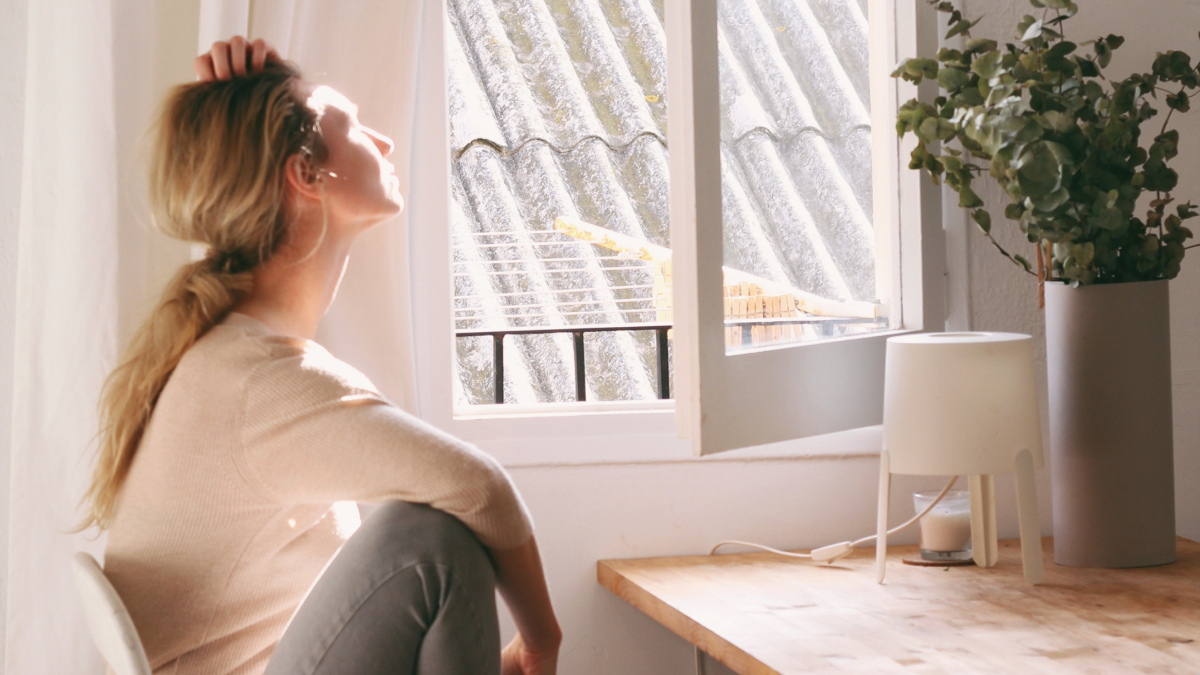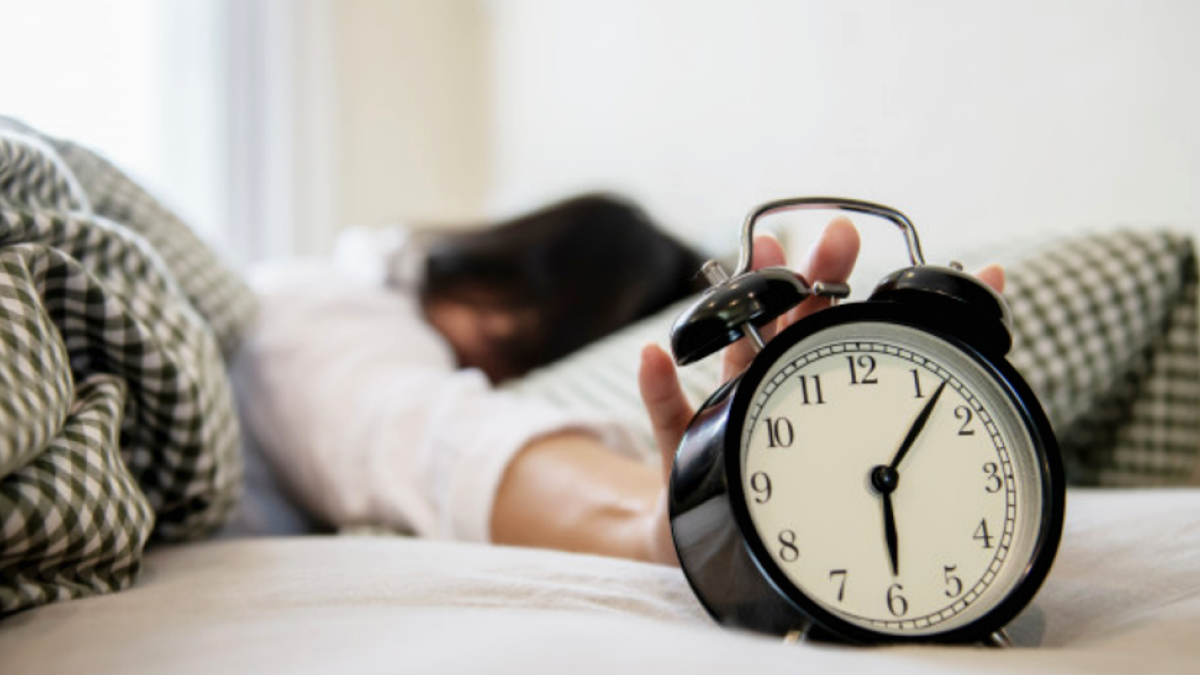
Have you struggled with falling asleep, or has your sleep quality decreased during the pandemic? Chances are, you’re not alone.
It’s often said that adults should sleep between seven to nine hours daily, but how many of us can actually sleep well for that long? With an increase in the use of technology, work and school stress, as well as the rise of social media, both sleep quality and quantity has been on a downward trend in recent years.
CircleDNA test results show that almost one in every 10 people experience frequent sleeplessness, while one in every four experience periodic sleep issues.
There isn’t a magic number between seven to nine because we’re all different, and some of us may require more or less rest than others. The important thing is that you rest well and wake up feeling fresh, energised, and ready to take on a new day.
If you think those sleepless nights aren’t a problem, think again.
The Dangers of Lack of Sleep
When you doze off, your body is able to heal optimally because you move less, breathe slowly, and your blood pressure and heart rate is lowered. The healing process allows your body to carry out an abundance of essential activities that includes, but is not limited to, reducing inflammation, repairing itself, regulating hormone levels, and creating long term memories.
You can also relax your sympathetic nervous system during a good night’s sleep, which reduces your stress and anxiety levels. Now, imagine the mayhem that occurs when you don’t rest well.
For starters, insufficient or irregular sleep disturbs all the activities mentioned above. It also affects your body’s circadian rhythm, which is clearly visible through a slowed metabolism rate and decreased cognitive functioning. Common examples of poor sleeping habits are weight gain and increased irritability, while more severe cases can lead to obesity and cardiovascular diseases.
So, what affects your sleep quality?
1. Your genes determine how you sleep.
As everyone’s genetic code is unique, so is their circadian rhythm. Your genetic makeup plays a big part in this as your circadian rhythm instructs your body when to go to bed and when to perform bodily functions.
Poor sleeping habits can come from clashes between your DNA and lifestyle, which is why it’s helpful to learn about your genetic tendencies to create an action plan.
2. FInding your optimal sleep pattern
Your sleep is also affected by habits and routines. Both positive and negative sleep habits can be reinforced on a daily basis, so irregular sleeping patterns can lead to poor sleep quality as it disrupts your body clock.
3. Lower your caffeine intake
Another culprit is caffeine. Light sleepers and people who are sensitive to caffeine will benefit from consuming less caffeine daily.
If you do need a cup of joe daily, you should drink in the morning or afternoon and avoid caffeine later in the day so that your body can relax, increasing your chances of maintaining good sleep hygiene.
4. Illness can affect your sleep cycle
Your health definitely affects how well you sleep. If you have existing medical conditions like asthma, arthritis, and back pain, you may find it more difficult to fall asleep and have a deep sleep.
5. Medication and its side effects on sleep
If you take any medication for your health conditions, they may, unfortunately, still hinder your sleep as a side effect. Some may in fact upset your sleep pattern.
It may seem like every aspect of your life can negatively affect your sleep quality, but don’t fret – there are many ways to fix the subject matter, too.
If you don’t want to stay up for hours staring at the wall, counting sheep, or just tossing and turning, here are some tips to help you improve your sleep quality.
Tips to improve your sleep quality
There are a number of lifestyle changes we can implement in our daily routines to improve our sleep quality and fix our sleep patterns.
1. Get more sun exposure during the day

Your body clock, also known as your circadian rhythm, is a tool that tells your body when to be awake and when to be asleep.
Exposing yourself to natural sunlight in the morning and afternoon can keep your circadian rhythm healthy as it increases daytime energy and nighttime sleep quality.
If you can’t get natural light, try using bright lights from devices or bulbs.
2. Reduce your screen time before bed
While getting sufficient sunlight is beneficial during the day, it has the opposite effect at night. Bright light exposure at night makes your brain think it’s still daytime, making your mind more active and awake.
Blue light from smartphones and laptop screens are huge contributors, so you should reduce your screen time two hours before bed, try glasses that block out blue light, or download blue light blocking apps.
3. Avoid drinking caffeine later in the day
Caffeine can make you more focused, give you a boost of energy, and improve your sports performance. Furthermore, many people simply love the taste of tea and coffee.
Sadly, consuming caffeine late in the day can overstimulate your nervous system and prevent you from relaxing at night.
As aforementioned, it’s probably best to drink your last cup of coffee at 3 pm if you have a caffeine sensitivity. If you really need a drink in the evening, opt for a decaffeinated beverage.
4. Don’t take long naps in the day
Do you feel a burst of life after a short power nap, but feel groggy and disoriented after a long nap? This is a common issue that people face, and it’s because taking long naps during the day confuses your body clock.
If you find yourself struggling to sleep at night after taking a long daytime nap, try napping for 30 minutes or less. If you find that daytime naps don’t disrupt your sleep at night, don’t sweat it – the effects of napping differ from person to person.
5. Go to bed and wake up at the same time every day

Another way to regulate your circadian rhythm is to have a consistent sleep schedule. By going to sleep and getting up at the same time, your circadian rhythm will be on a fixed cycle that matches up with the sunrise and sunset.
After sticking to a regular sleep schedule, you may find that you start feeling sleepy at your specified bedtime as your brain is signalling your body to go to bed. It may also be easier to wake up in the morning and you may not even require an alarm.
6. Reduce your alcohol intake
Although some people have a drink or two before bed when they can’t sleep and need something to knock them out, that isn’t always the case.
Alcohol is known to increase sleep apnea, snoring, and disrupted sleep patterns. In the long run, drinking alcohol before sleeping can negatively impact your sleep quality and hormones. It also disrupts your nighttime melatonin production, which then affects your circadian rhythm.
7. Make your bedroom the perfect environment for good sleep
We are products of our environment, so creating a bedroom ambience that encourages sleep will help you to rest well. Multiple studies have shown that reduced noise and light leads to better sleep.
Key factors include external noise such as traffic, internal noise from your devices, temperature, lighting, and furniture layout.
8. Unwind before bed
Many a time, it’s your mind that is overactive before bed, not your body. This is why many people recommend nighttime routines that help you to relax before sleeping.
Simple things like deep breathing, meditating, and listening to music can help. If you have more time, you can plan a cosy night with a hot bath, a light read, and indulgent skincare and body care products. Have fun trying out different methods to find one that is suitable for you!
If it all about creating the cozy bedroom environment and “chillax vibes”, here we have the wildly favourited YouTube playlist to help you get into the mood of winding down:
